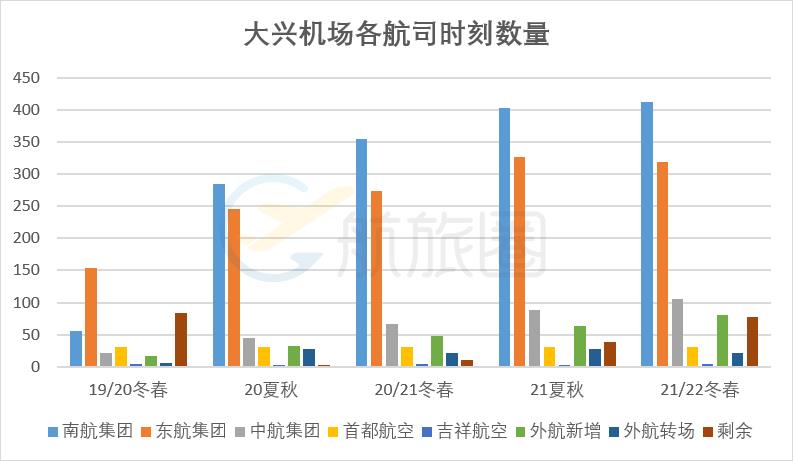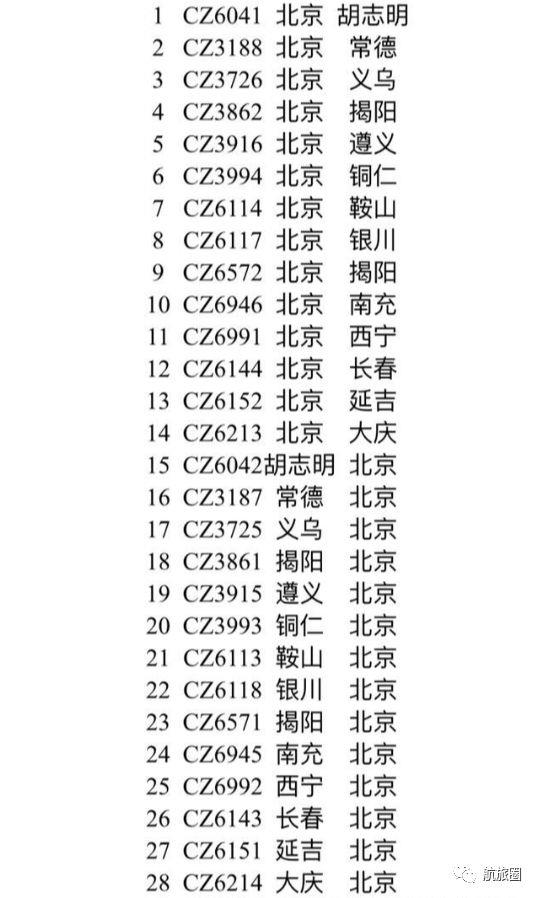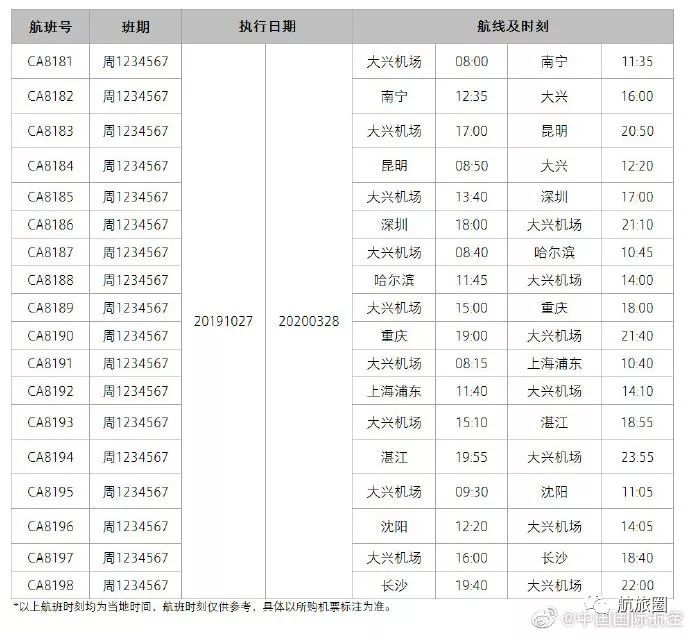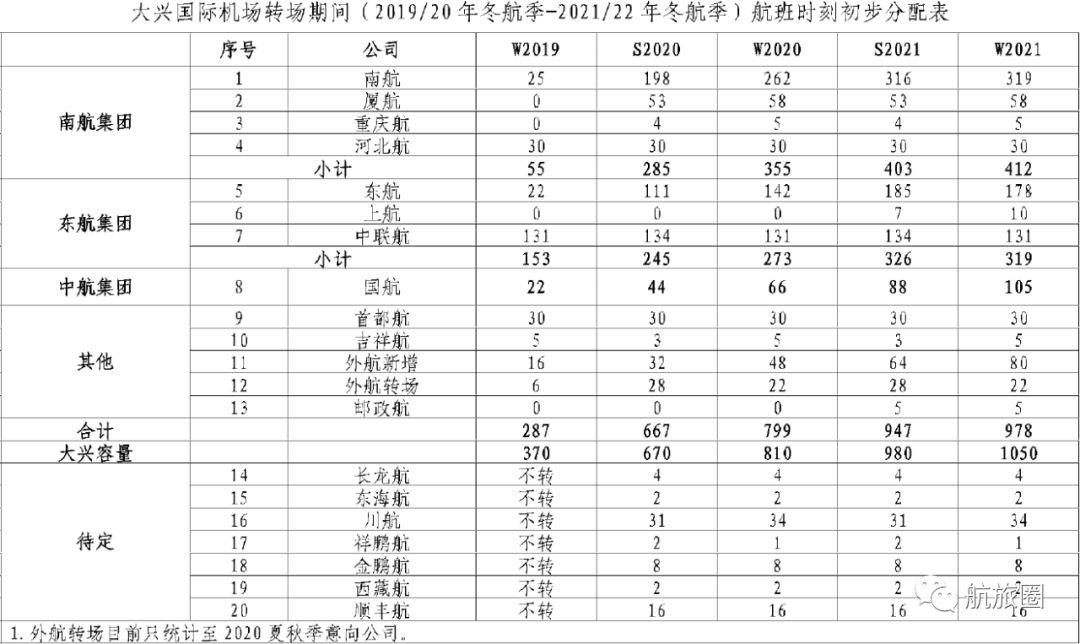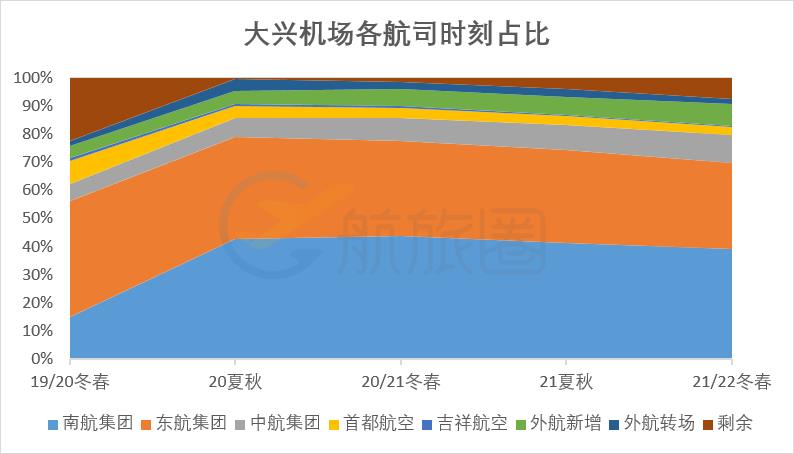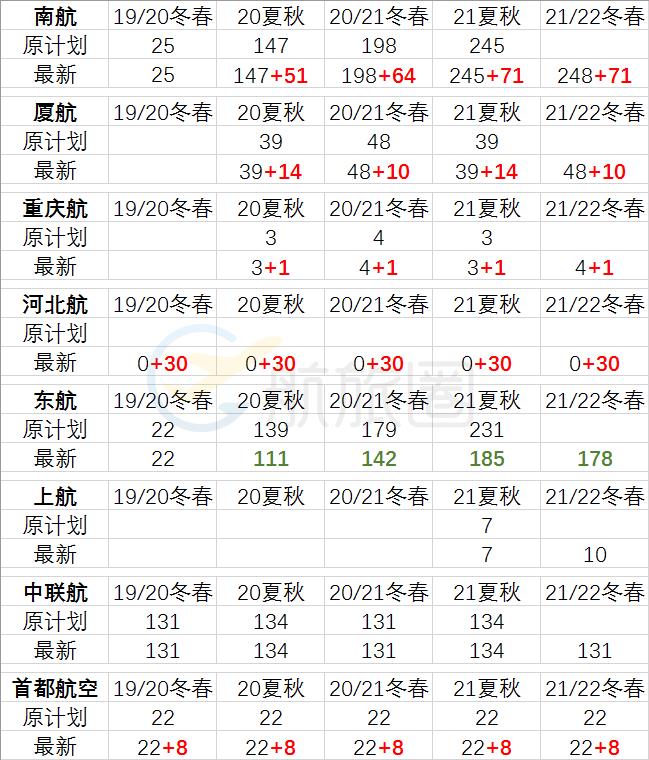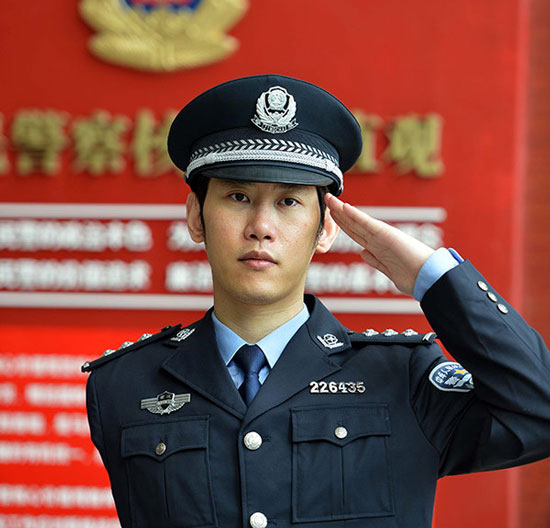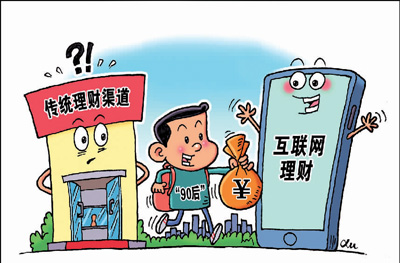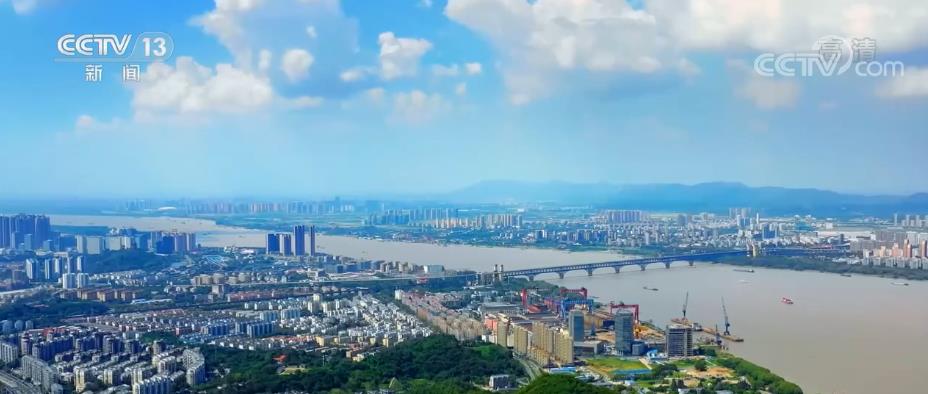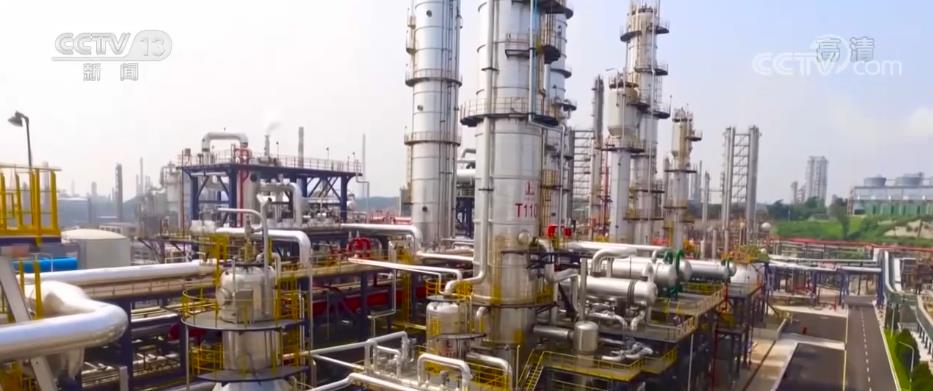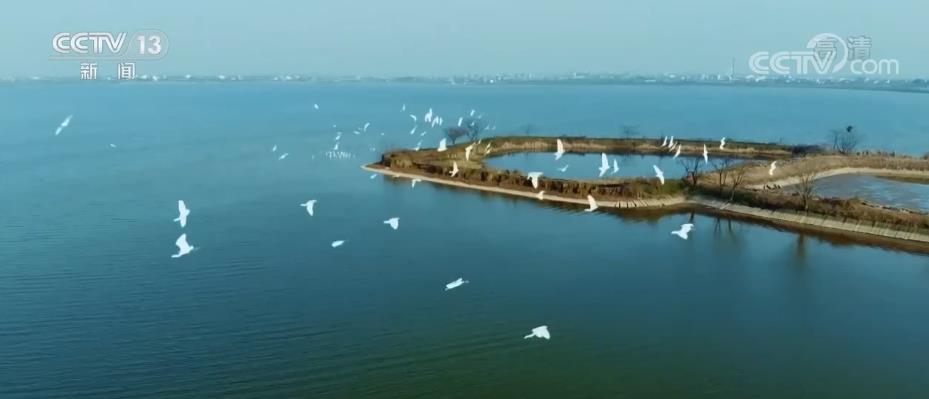In the early morning of September 10th, Beijing time, Apple put an end to the gossip on the Internet with a press conference that made people "guess the beginning and also the end". I brought an Apple Watch that I have met before, and a little unexpected.
Even though there have been many speculations and early exposure events before the press conference, we are still waiting for them in front of the screen like looking forward to the "World Cup" every four years. Half is to verify the guess in my heart, and half is to look forward to the "The one more thing" that means surprise.

Then the conference was held at Flint Center in Cupertino, California, USA, where the first generation Macintosh computers were released in 1984. It has been proved that today’s Apple has indeed brought us a new product line-Apple Watch, which can match the historical position of this auditorium.

Apple’s new product launch chose to release the first generation of Mac in 1984.Flint Center
Even if there are new products, we still pay more attention to the news of two new products. Among them, the naming method of Plus is indeed a little unexpected, and the addition of a horizontal screen interface similar to iPad also makes us start to think, is it necessary for this product to continue to exist?

Four products on sale: Plus (picture from Apple)
The two new iPhone really look like this. I wonder if the friends in front of the screen have digested the design of the two new products in advance. Anyway, I still can’t accept such a rounded iPhone for the time being, or rather, it should be the "three bars" on the back of the fuselage (please support me from Virgo students).
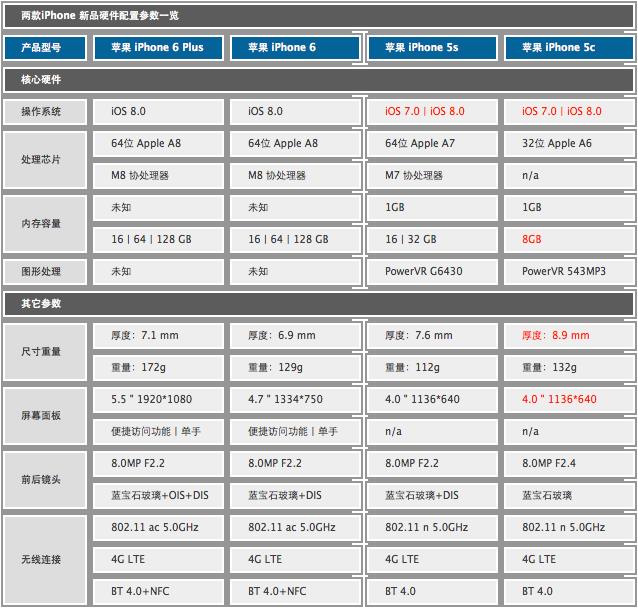
As well as the Plus, the enlarged display panel has also expanded the fuselage. Among them, 5% of the products are undoubtedly declaring war on the big-screen products of rivals, while 4% of the products are the continuation of "one-handed feelings" and also a challenge for Apple’s ultimate pursuit.
In terms of configuration, Apple A8 processor (CPU performance increased by 20%, GPU performance increased by 50%) and NFC module all appeared. In addition, although Apple did not mention the specific capacity of the battery, the endurance of the two new products has been fully upgraded. In addition, the camera module of Plus has also added an optical anti-shake module.
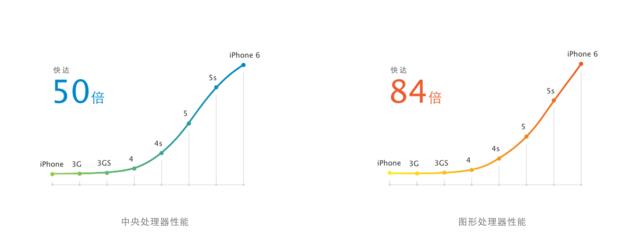
1.4 GHz Apple A8 processor CPU performance increased by 20% and GPU performance increased by 50% (image from Apple).
In terms of storage capacity, Plus directly skipped the 32GB version, and after the 16GB diaosi version, it was the previous 64GB version, and then the new top version provided 128GB of storage space, which was consistent with the previously released iPad Air.

There is no Chinese mainland in the starting area with Plus (picture from Apple)
As for the sale of the new machine, Apple seems to be more eager than the consumers in front of the screen. The reservation was accepted on September 13th, Beijing time, and it was officially released on September 20th. However, Chinese mainland was missing from the first batch of sales areas, so it seems that the opportunity can only be left to the real local tyrants.
In addition, the official version of the iOS 8 system will be released on September 18th, Beijing time. For the old users who are still using iOS 7, even if they don’t change the new machine, the new features of iOS 8 are enough to get more new functions for the old devices in your hands. As for the specific content, we will start from the following.

Exclusive price for all partners
Earn enough pocket money and join ZOL’s National Partner.
Do you envy me for making money? 20 seconds to register to join ZOL "National Partner", you can also get a high profit commission for every product sold, with no ceiling. Full Alipay transaction, manufacturer delivery, with formal invoice, and zero cost, what else do you want? Don’t say I didn’t give you a chance to make money.
http://hh.zol.com/
Cheats of making money National partners quickly participate in the process of answering questions.
The "stunning" appearance of Hehe (hereinafter referred to as "they are different in size but identical in overall design") still continues the tradition of changing the appearance of the series of products from generation to generation, which should have started from the second generation of the series, from iPhone3G, iPhone3GS to iPhone4, and then to iPhone5/. In fact, we can also expect this before the news of exposure has spread all over the sky. On the other hand, the reason why I put quotation marks on the word stunning is because the change in the appearance of the iPhone seems to be the loudest one. When the iPhone4 was exposed, people were amazed at its design, but when the iPhone5 was exposed, they often heard it, but in fact, the appearance of the iPhone5/5s was still satisfactory enough. So, is it amazing or disappointing this time? Let’s follow in our footsteps and have a look.

Final appearance
If the iPhone5/5s is handsome and compelling, it gives people a somewhat more feminine and lovely feeling. Although the iPhone series models have not been suitable for using the word tough, they are really not as angular as the previous iPhone. In the visual treatment of the whole appearance, a large number of arc designs are adopted, which is also the reason why they look more feminine and lovely.

/6 Plus size comparison (left is right is Plus)
Although its market performance can’t be said to be bad, it is certain that its sales volume is far below Apple’s expectations, so when Apple changed its tactics, we all know that this release has two versions with screen sizes-() and (Plus), which makes the fans who have been looking forward to the big-screen iPhone get what they want, and of course makes the "one-handed party" a little embarrassed, but in any case, the big screen is definitely a trend. The resolution of is 1334*750 pixels, while the resolution of Plus is 1920*1080 pixels.

Size comparison of iPhone5s/6 Plus (left for iPhone5s, right for Plus)
There are two size versions, the 4. version is called Plus, and the 5. version is called Plus. The size of the whole machine seems to be very well controlled. Although the screen size has increased a lot, the control of the three dimensions of the whole machine is still good, and the proportion of the whole screen has also increased compared with the past. The compactness of the front of the whole machine has become stronger and the visual impact is greater, which is why the three dimensions of the screen size have increased but it has remained excellent. Of course, this screen will be introduced in detail later.

The /6 Plus uses 2.5D curved glass.
The front of the fuselage is still a whole panel. What is different from the past is that we can see a certain curvature at the edge, which is the 2.5D curved glass used by many Lumia models. In the design of sensor and front camera, there is not much change compared with the past. The front camera is placed on the left side of the receiver, while the light+distance sensor is above the receiver. In the previous exposure, if there is a third "black spot" besides these openings, it should be a cottage.

Front camera and sensor of /6 Plus

Home button and Touch ID of /6 Plus.
At the bottom of the screen, it is still Apple’s iconic physical Home button with Touch ID function. Although we haven’t tested it in detail yet, I believe that the Touch ID will have a better performance in terms of experience (in fact, the one on the iPhone5s is already excellent enough …). In fact, because of the arc design of the panel edge and the change of the border, people have the feeling that the screen floats on the fuselage. I don’t know if this will make people like it.
On the whole, although the size of the fuselage has changed, the change in the front is not too big, and most netizens focus on the back design. The back still adopts a three-stage design, but the difference is that the back of the whole fuselage, including the frame, is made of metal. From the design of double-sided glass in iPhone5 to this generation, it has officially come to an end.

The back has a three-stage design.
Because the back is made of a whole piece of metal, annoying signal problems also appear, and the screen adopts the same method as One, that is, it is divided into several parts, and the middle is filled with plastic material. After careful observation, we can find that there are not only two dividing lines that divide the back into three parts, but also a circle of such dividing lines on the whole back. It is precisely because of these designs that many netizens express that the back is too ugly.

//Contrast on the back (as Plus on the right in iPhone5s)
If these are relatively easy to resist, then what I want to say next may be the most unacceptable fact for fruit fans. The camera of iPhone is convex. In the past, fruit fans were proud of the whole flat back. "XXX can’t make the camera not protrude like iPhone?" !” This sentence seems to be missing for a while in the future. On the bright side, the protruding height of this camera is not too high, and there is a border around it, so netizens still don’t have to worry about protection. However, one thing to note here is that both Plus and Plus still use 8 megapixel cameras, but the specifications are still improved, and they support digital image stabilization. Plus supports optical image stabilization (sure enough, there are differences between the two versions).

Camera confirmation bump of
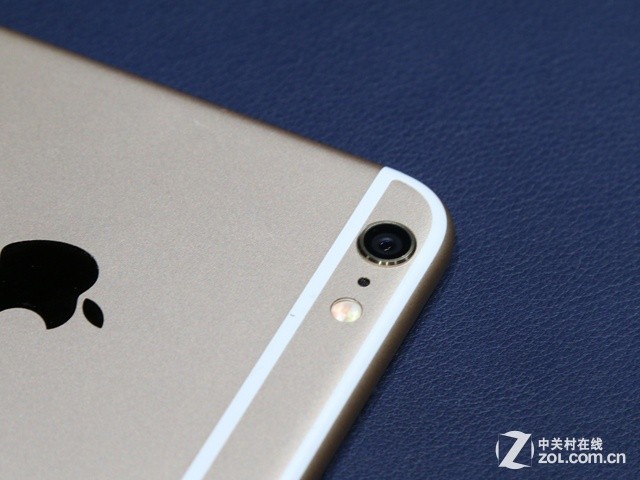
Plus has not been spared.
There is a microphone for noise reduction next to the camera, and the flash is on the right. We can see that the size of this flash is still relatively large, because it has made two flash lamps arranged vertically in the past into a whole circle, and it is also a dual-color LED flash, which has improved the exposure effect and nature, which has been recognized by many users on the iPhone5s. This design also deepens the element of cuteness that I mentioned at the beginning.

The one on the back is really not very beautiful

The same symmetrical design below.
The position in the middle of the fuselage is still the familiar Apple logo. Compared with this design and pattern, it is the biggest appeal for fruit fans. As for the bottom of the back, I don’t think this up-and-down symmetrical design contains too many functional considerations. According to Apple’s design ideas, it should be symmetrical for the sake of symmetry and get a better sensory experience in visual effects. I wonder if such netizens can accept it?
In addition to the design of the back of the fuselage, the design of the fuselage frame has also undergone great changes. First of all, the most intuitive thing is that the frame has changed from a plane to an arc. In my opinion, the metal material of the integrated fuselage is very critical, which also determines the modeling design of the frame. Of course, on the other hand, it should be a solution to take care of the feel of the whole machine after the screen size increases. After all, the arc should be more consistent with the curve of the palm, and the performance of the grip will be better.

The /6 Plus frame has a curved design.

Because of the curved glass, the front looks floating.(Left is right)
Viewed from the side, the 2.5D curved glass mentioned earlier can also be seen more intuitively, and we can see that the front panel is indeed "floating" on the frame of the fuselage. As for the design of the surrounding buttons, there is no small change. Because of the increase in size, the power button has been moved from the top to the right side of the fuselage, so that the top of the fuselage becomes bare without any buttons and jacks.

The top of the fuselage is bare (top is Plus)

The function of the bottom of the fuselage is relatively dense.(the top is Plus)
The bottom of the fuselage is still a relatively dense area, from left to right, there are 3.5 mm headphone jack, microphone, Lightning data cable jack and speaker. In fact, there is not much difference between the functional arrangement of the bottom of the fuselage and the previous models. The change is that the microphone that looks like a speaker in the past is changed to a single-hole design, which may be due to the thickness of the fuselage. The thickness of the fuselage has been reduced to 6.9 mm, while the thickness of the Plus is only 7.1 mm, which is much less than that of the iPhone5/5s.

The change of the volume key is obvious (the top is Plus)
On the left side of the fuselage are the classic mute button and volume button. The function of mute button is believed to be very familiar to netizens, and the switch-type design looks simple and clear, both practical and functional. The volume button at the bottom adopts the long strip design on the iPad, which is also because the thickness of the body has been reduced to 6.9/7.1 mm. If you continue to use the round button, the size of the whole button will be reduced, and there will be a certain loss in the feel (reference power button), but in terms of visual effect, I personally prefer the round button, giving people a more exquisite feeling.

Move to the power button on the right side of the fuselage.(the top is Plus)
As I mentioned just now, because of the increase of screen size, the power button on the top of the fuselage is placed on the right side of the fuselage, which is very necessary in practical use. For a fuselage of this size, the thumb will be easier to operate than the index finger. Below the power button is the SIM card holder, which still uses the smallest Nano-SIM card at present.


Hand-held /6 Plus size comparison (left is right is Plus)
In fact, from the perspective of the whole body circumference and weight, its grip is still very good, and the radian treatment of the frame is indeed a plus item in the feel, which should also be an important part of Apple’s optimization of the big screen experience, and it is particularly important because the frame with radian design also ensures the thinner feel of the body. In terms of body color, Apple still offers gray, white and gold. In a word, the appearance has really changed a lot. As for whether it is acceptable or not, I believe it is still a topic that varies from person to person. But just like the iPhone5, after it is officially put on sale, no matter how ugly it is before, it still grabs the rhythm of "buying in buy buy".
Compared with the small size in recent years, the design changes of the two new machines can almost be said to be a reinvention. Then Zhou Hongyi once said that "no one can beat the trend". It seems that even today’s Apple has failed to do so, and finally made a compromise to the trend of "generally adopting larger screens".
■ Give you the big screen you want.
If you only use one sentence, then "the screen size has increased" will be the best answer to the question "What has changed in the new machine". We can blame all the design changes of the two new machines on the changes of these two screens. The cambered surface of the fuselage frame, the adjustment of the position of the power key and the design of the lens have all changed.

Both and use curved screens.
Unfortunately, neither machine uses sapphire as the outer screen material, even the more expensive Plus with a larger screen size. However, there is still a curved surface design at the edge of the screen. Although this "water drop screen" has been worn out by Nokia Lumia series products, it is better than nothing.

Screen size comparison of four iPhone products on sale
Among the two new products, the screen size of is, the physical resolution is 1334*750, and that of pixels per inch is 326 (consistent with). The screen size of the larger Plus is, and the physical resolution is 1920*1080, which is improved to 401 in pixels per inch.
■ How does Apple adjust the larger panel?
Then the screen size is also increased. The previous iPhone 5 (,1136*640) was lengthened on the basis of (3., 960*640). The final result is a row of icons on the screen, and the screen ratio has changed from 3: 2 to 16: 9, which is now used by mainstream mobile phones.
The screen ratio of the two new machines is still 16: 9, so the previous method is no longer applicable. So how to adapt to a larger display panel, Apple gives users two choices. The first method is to do simple enlargement directly, and the size of all UI elements is increased by about 15%.


The left picture is an enlarged view. The right picture shows the standard view.
The second method is that Apple provides users with a standard layout that can "put seven rows of icons", and adjusts the gaps between elements on the basis of keeping the size of the original UI elements unchanged, so as to adapt them to the new size panel. As for whether the icon will become blurred after the resolution is improved, the reporter’s answer in front is that he can’t detect it.
■ Join the landscape mode to grab the iPad job?
Since this version, there has also been a horizontal display mode, but this mode is exclusive to the 5.5-inch Plus. For Plus with a large size, the horizontal display mode brings a column layout similar to the iPad version of iOS to the application, and the processing efficiency will also be improved.


Plus added landscape mode.
■ How does Apple deal with one-handed operation?
The screen size has increased, and the iPhone, once famous for its small size, has to face the problem of how to handle one-handed operation. The iOS 8 system integrates a one-handed operation mode called "Convenient Access". When the user touches the Home button twice, the whole screen can be moved down to the range of thumb. A hammer T1 is also used in a similar way.
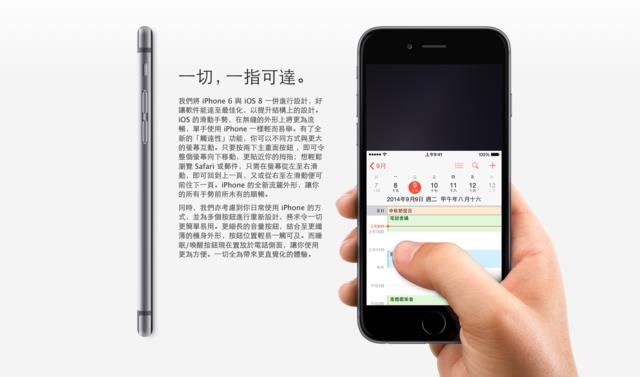
By touching the Home button twice, the iPhone can enter convenient access mode (picture from Apple).
■ Apple’s official screen quality parameters
In terms of screen quality, the reference value of screen brightness given by Apple and Plus is 500nit, but in fact, after testing, the highest screen brightness of iPhone 5s has been able to reach 550nit. Then, after the dialogue between Lao Luo and Wang Ziru, we are more willing to believe that this is Apple’s conservative statement.
Thanks to the use of semi-reflective and semi-transparent backlight panel, iPhone series phones have always had good screen readability in outdoor sunlight. This time, the two new machines have improved the design of the built-in polarizer (originally), so that those users who usually like to go out with sunglasses can also have a better screen reading experience.
The two new machines are equipped with the latest iOS 8 system at the factory. Compared with the new products with a little mystery before the conference, the new version of the system that has been released at the developer conference is not so noticeable. However, with the release of new products, we also have some new understanding of the iOS system.
■ A more efficient programming language
Then Apple introduced a new programming language "Swift" at the developer conference in June, with simpler code structure and higher execution efficiency. This seems to be a good solution to the negative impact of thinner fuselage and higher resolution, which is the heat dissipation problem we are worried about.

The new system will adopt Swift programming language with higher execution efficiency.(Image from Apple)
Therefore, even if the newly-launched Apple A8 processing chip does not upgrade too many hardware specifications, Apple still brings users an improvement in experience through system optimization. Let’s take a look at the subtle differences and changes between the official version of the system at the press conference and the previous Beta system.

 Screen Locking in iOS 8 SystemSurface and standby desktop
Screen Locking in iOS 8 SystemSurface and standby desktop

 Notification center of iOS 8 systemWith the control center
Notification center of iOS 8 systemWith the control center
Many system screenshots before the conference show that the icon of the official version of iOS 8 system "Passbook" has a "horizontal bar", which is indeed the case in the real X iOS 8 system. In addition, there is an option of "7 lines" icon on two large-size iPhone.
■Apple Pay payment function
In addition to the horizontal screen mode, zoom mode and convenient operation functions we have mentioned in the previous screen part. "Apple Pay" is a new function that has not been announced in the WWDC release, because its implementation needs the help of NFC sensors on new machines, and Apple will naturally not announce this news in advance.

Apple Pay combines TouchID for fast online or offline payment (picture from The Verge).

Using Apple Pay requires binding a credit card or debit card in Passbook.(Image from The Verge)
With the function of Apple Pay, "Passbook" has become more practical. By binding the bank card, the users with can verify their identity information through the fingerprint identification function of Touch ID, and the transaction process both online and offline is greatly reduced.

The reporter in front experienced the Apple Pay fingerprint payment function at the press conference.
IOS 8 system with the update of Mac OSX 10.10 makes more interaction between Mac and OS devices. Through the "Hand Off" function, users can continue their unfinished work (editing documents and writing right buttons) on Apple devices such as iPad or Macbook.

After updating the system, Apple strengthened the interaction between iOS devices and Mac devices (picture from Apple).
In addition, through this function, we can also make phone calls and send ordinary short messages on Mac devices, which reduces our dependence on device entities. Even if I’m worried that it’s not convenient to use the computer’s external phone, at least it can remind me of the incoming call in silent mode.
1.iCloud Drive
Three years ago, Apple launched the iCloud service for synchronizing information between multiple designs at the launch of mobile phones. In the iOS 8 system, Apple has opened ——iCloud Drive, a cloud storage service for any file, but the storage capacity provided free of charge is still limited to 5GB.
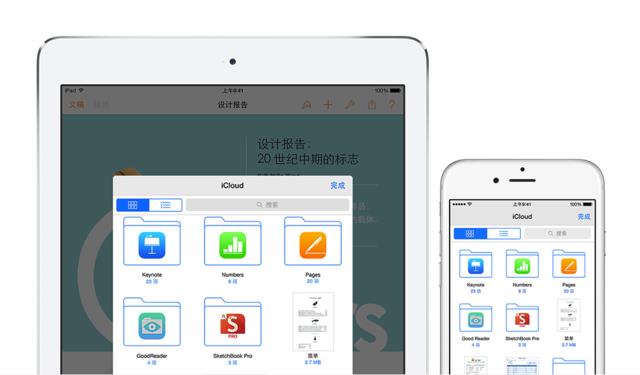
Apple has opened the cloud storage function of iCloud Drive (image from Apple)
2. Family sharing
In order to solve the problem of family members sharing purchased applications, music and video resources, the iOS 8 system has also added a function called "family sharing". Through this function, the content purchased between multiple accounts can be shared. In this way, the cost of consuming content between friends is greatly reduced.

Family members can share apps, music and videos purchased by other members through the family sharing function (pictures from Apple).
The appearance of family sharing function solves the problem of synchronization between FaceTime and iMessage when using an ID. And for many friends in China who have accounts in the Central District and the United States, there is no need to switch when downloading applications purchased in the United States (for example, operating on a computer).
3.Health Kit
For many bracelets and health peripheral products on the market, Apple provides a unified data interface-HealthKit in the iOS 8 system. Through the Health Kit development kit, the data of these peripherals will be integrated into the new health APP added by iOS 8 through internal calls.

Newly added health APP in iOS 8
In the actual use process, this APP will also set up a "medical emergency card" for users in emergencies (local users in the United States can directly bind to the medical insurance card), and the information registered by users (blood type, medical history, allergic reaction, drug use) will be presented in the "emergency" interface.
Still upgraded for the 8 megapixel camera
■ Camera specifications
Before and after, Apple’s camera has experienced 8 million pixels for three consecutive generations. Nevertheless, Apple has also upgraded the sensor model, size, pixel size and software and hardware optimization to varying degrees. Of course, ordinary users who don’t know the technical details seem to be more impressed by the fact that 8 million pixels have not changed. This time, and Plus still continued this number-8 million pixels.

Still an 8 megapixel camera.

The camera is slightly convex, but it is acceptable.
The common details with the Plus camera-8 million pixels, single pixel size of 1.5 microns, and aperture f/2.2-are the same as those of the Plus camera, and the changes are that it adopts a brand-new sensor, has a new generation of noise reduction function, doubles its focusing speed based on the ISP (image signal processor supported by A8) designed by Apple, and Plus supports optical image stabilization (not supported).
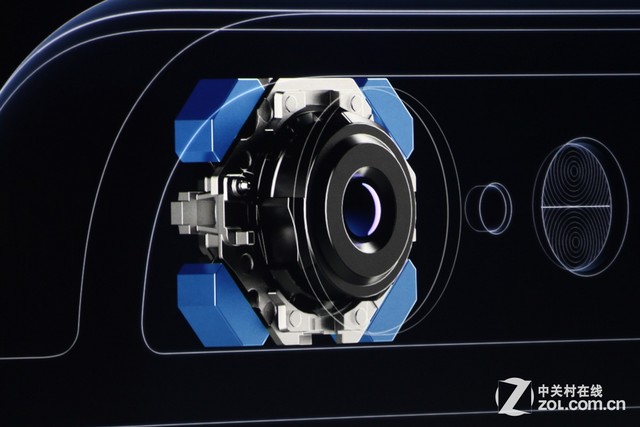
Plus supports optical image stabilization.
Demonstration of continuous shooting function
■Video recording
And Plus support 1080p video recording with 30-60 frames/sec and slow motion with a maximum of 240 frames/sec, and the slow motion video is doubled compared with the maximum of 120 frames/sec of the iPhone5s.
Slow-motion video demonstration
■flashlight
In terms of flash, the iPhone5s adopts the dual-LED True Tone flash for the first time, and the simultaneous action of cold and warm color temperature flash makes the white balance control of the iPhone5s better when the flash is turned on in low light environment. Inherited and developed the characteristics of iPhone5s dual-LED True Tone flash, and changed the way of arranging two LED lights up and down into the appearance of "one round flash", but two cold and warm flashes still exist at the same time. Although it is only a small change, it can be seen that Apple has made a lot of technical efforts.
■New front camera
Apple and Plus adopted a brand-new front camera, and Apple named it the new Facetime HD camera. It adopted a brand-new sensor, and the aperture was raised to f/2.2. Under the same conditions, it could get more light (up to 81%) than before.
■And Plus camera hardware reviews.
Generally speaking, and Plus have not made much improvement in the camera hardware. The number of pixels, the size of a single pixel, the sensor area and the aperture are all the same as those of the iPhone5s. The upgrade points are mainly the sensor model update and faster focusing speed and enhanced noise reduction. Of course, Plus has also added optical anti-shake support. Therefore, from these technical details, the photo with Plus is still slightly upgraded, mainly for the camera speed and low-light camera ability.
Due to the limited on-site conditions of the conference, I will briefly present some shooting proofs and screenshots of the camera interface for you for the time being, and the following content will continue to bring you more detailed information.


Support 240fps slow motion video.
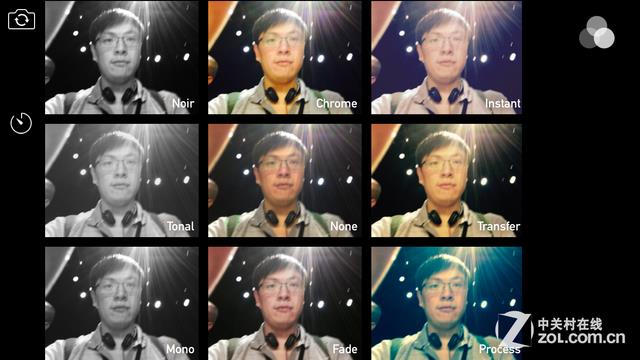
Multiple filters

On-site proof of press conference

On-site proof of press conference

On-site proof of press conference

On-site proof of press conference

On-site proof of press conference
New Generation M8+A8 Chip Combination
The A7 processor made Apple first enter the 64-bit era in intelligence, and also brought the M7 motion coprocessor. And this combination is continued, bringing a brand-new A8+M8 combination.
Compared with A7, A8 chip is 13% smaller and 25% faster. It adopts 2 billion (double the 1 billion compared with A7) and 20 nm process (A7 is 28 nm), and the performance of graphics processor is improved by 50%.
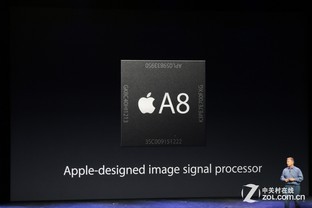
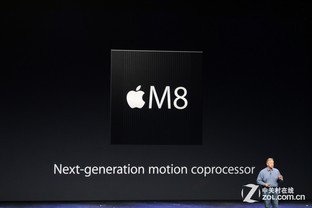
New A8+M8 combination
The performance of A8 chip is 50 times higher than that of the first generation, and that of GPU is 84 times higher than that of the first generation. The chip area has been reduced from 102 square millimeters in A7 to 89 square millimeters.
Working with A8 is a brand-new M8 motion co-processor, which will not only collect information from gyroscopes, accelerometers and direction sensors, but also collect information from newly added air pressure sensors. Through the new air pressure sensor, not only the distance data can be counted, but also the height and other data information can be counted.
As we expected, Apple didn’t announce the number of A8 cores and the specific model of GPU at the press conference, so we will keep an eye on it at any time and bring you relevant reports in time. Of course, now we know that it is important to improve its performance again.

Metal technology will bring high-quality image quality to Apple iOS devices.
Another:In the press conference, Apple once again introduced Metal, a new generation of graphics technology introduced on WWDC. "Metal technology brings host-level image quality to Apple’s iOS devices." This is what Apple said before. In this conference, Apple said that it will work hard to promote Metal applications and games, and bring users a higher-quality application game experience. The first batch of Metal games will arrive before the end of the year. In view of the increased screen size of and Plus, I believe that these higher-quality game experiences will be better.
A total of nine colors and two new protective shells made of materials.
As in the times, Apple still released leather and silicone protective cases for peace and purpose. Obviously, the Plus protective case is very suitable for both models.
Among them, the silicone protective shell has six colors of black, blue, orange, green, gray and red, and the leather protective shell has five colors of black, white, brown, blue-black and red, and the two materials have nine colors in total. This can make Plus and its own deep space gray, gold and silver get more color shapes. Of course, due to the characteristics of silicone and leather materials, it can also ensure a good feel and protection for the mobile phone itself.

Apple released two mobile phone cases.

A large number of protective covers were displayed on site.

A large number of protective covers were displayed on site.

A large number of protective covers were displayed on site.
128GB capacity version! Yes, you are not mistaken. The newly released and both have 128GB capacity versions, which is consistent with previous rumors, but this does not mean that and Plus have four capacity versions to choose from. 32GB has been "unfortunately" cancelled. At present, these two models have 16GB/64GB/128GB three capacity versions to choose from.

/Plus is available in three capacity versions.


The two-year contract price of /6 Plus is the same as before.

/5s immediately reduces the price.
Besides capacity, we are most concerned about the price. After all, there are only two kidneys! Whether you can afford it depends on whether the price is acceptable. Judging from the KeyNote at the press conference, the two-year contract prices of the three capacity versions are US$ 199/US$ 299/US$ 399 respectively. According to the pricing strategy in previous years, their retail prices of RMB should be RMB 5288 /6088 /6888 respectively.
On the other hand, the two-year contract prices of the three capacity versions of Plus are US$ 299/US$ 399/US$ 499 respectively, and the corresponding retail price of RMB may be 6088 yuan /6888 yuan /7688 yuan if there is no accident. Yes, the "highest match" broke through 7,000 yuan in one fell swoop. For you, the local gold version of 128GB Plus is your symbol.

Accept the reservation on September 12th.

Officially shipped on September 19th.
According to the news released at the press conference, these two models will be booked on September 12 (September 13, Beijing time) and officially shipped on September 19 (September 20, Beijing time). The release date is exactly the same as the previous exposure date. In the area of sale, Chinese mainland did not appear in the list of the first batch of countries and regions for sale, and official website in China of Apple still showed "the date of sale will be updated later", so it seems that scalpers can have a good rest. . .

With the first difficulty.

In addition to the screen size resolution, the two machines also have differences in camera anti-shake.
Now it’s time for the purchase manual. If you are a phobia patient, take a look! First of all, we are faced with the question of whether to choose Plus or not. This question depends entirely on whether you have a big screen, especially a big screen. There is no difference between them except the screen and the camera, so it will be very simple after you figure out this question.

Still have gold/silver/gray three colors to choose from (picture quoted from Apple official website)
After choosing Plus or Plus, we have to choose the capacity version. For most consumers, I believe they will not choose the 128GB capacity version, because its practicality and necessity are too low. In the face of 16GB and 64GB versions, there are obviously two groups of people. If you just want a good mobile phone, the capacity of 16GB is enough to meet most of your needs.
For application control, the 64GB version is undoubtedly more valuable, because in the case of the same price difference, you can only buy 64GB at the price of 32GB in the past, which makes the large-capacity iPhone model related to the cost performance for the first time, so you still need to understand your needs. As for the color, it is always a matter of different opinions. From my personal point of view, deep space gray is undoubtedly the most attractive on the basis of this design.

The Hong Kong version with a price of 64GB is quite attractive.(The picture is quoted from Apple official website.)
Of course, at present, the launch area of /6 Plus does not include Chinese mainland, and Apple’s decision is really confusing. Of course, we should also look on the bright side, that is, the Hong Kong version is still the cheapest choice in the world, with three versions equivalent to RMB 4,425/5,059/5,692 respectively, and three versions of Plus equivalent to RMB 5,059/5,692/6,404 respectively. Of course, there is also a problem here. If the sales situation is still like the iPhone5, /6 Plus will probably go to the purchase restriction measures. We will continue to pay attention to these issues later. I hope netizens will pay attention to our news reports.
summary:
Sure enough, after the concentrated exposure of the shower, and Plus, except for the naming, it didn’t guess correctly again, and everything else was basically consistent with the exposure. Even if we don’t consider the surprise and Plus, we haven’t brought too many revolutionary changes, and the sound of spitting in design is definitely the best in the iPhone series. However, from a more rational point of view, and Plus are still products worth buying. After all, they really give you what users want, especially relying on the words big-screen iPhone can attract countless fruit fans to buy, and in all aspects, Apple is developing steadily, and once again the word balance has been better interpreted.
The word "big screen", which has never appeared on the iPhone, has finally appeared. The two big screens of iPhone6 and iPhone6 Plus are believed to make many users flock to it because the iPhone has no big screen. As for whether other hardware has been greatly upgraded, it may not affect the choice of ordinary users.
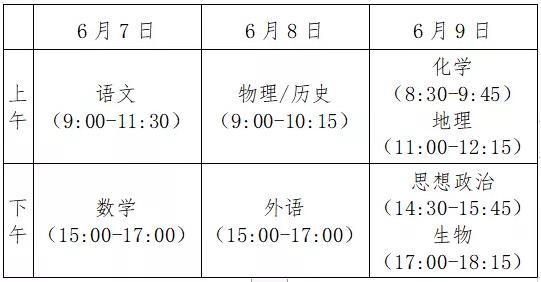




































 Screen Locking in iOS 8 SystemSurface and standby desktop
Screen Locking in iOS 8 SystemSurface and standby desktop
 Notification center of iOS 8 systemWith the control center
Notification center of iOS 8 systemWith the control center


































